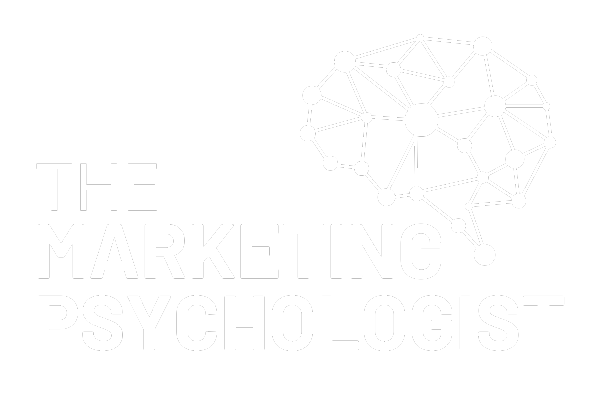Marketing in a World on Edge
Why Your 2025 Strategy Needs a Human-Centered Reset
As I sit here with my coffee watching another heated political debate unfold in my newsfeed, my marketing psychologist brain is on high alert: We're all living in a collective survival state.
No matter which side (or non-side) you’re on, your values, morals, or personal stance — the turbulent nature of the world is affecting your brain.
The constant barrage of political tension, economic uncertainty, and global unrest is fundamentally altering how our brains process information and make decisions.
As a marketing psychologist specializing in consumer behavior, I know that this shift in our heightened state of alertness affects everything from daily purchasing choices to major life decisions.
When the brain operates in survival mode, its primary function shifts from growth and expansion to protection and conservation. This neurological shift has created a critical marketing landscape - one where all your well-planned approaches may no longer resonate with audiences whose fundamental decision-making processes have been rewired by persistent stress and uncertainty.
Your company or organization most likely developed a yearlong (or longer) strategy for 2025 somewhere in the back half of last year. Although many of us knew the new year would bring unpredicted changes, I am doubtful anyone had the foresight to anticipate this type of change and disruption to our daily lives.
I’m going to dig into how our current events are affecting our brains and the consumer psyche, hopefully encouraging business owners and decision-makers to invest in revisiting their marketing strategies to align with the higher-level, more collective consumer state of mind.
Let's explore three critical psychological frameworks that can help us adapt our marketing strategies to this new reality:
1. The Shifting Emotional Landscape | Neural Rewiring in Action
The amygdala - our brain's emotional center - becomes hyperactive during periods of sustained stress, fundamentally altering how we process marketing messages. What resonated with consumers six months (or six days ago) ago may now trigger resistance or anxiety.
The Psychological Construct at Play: Emotional Regulation Theory suggests that under stress, people seek stability and reassurance over innovation and risk.
Here’s the Action Step: Audit your marketing messages through this lens. Are you acknowledging the emotional weight of current times? Replace aspirational messaging with grounding, stability-focused communication that speaks to your audience's need for security and certainty.
2. Adaptive Empathy Mapping | Understanding the New Customer Journey
The psychological concept of "cognitive load" has never been more relevant. Our customers are carrying unprecedented mental burdens, affecting how they evaluate and make decisions about products and services.
The Psychological Construct at Play: Decision Fatigue Theory explains why seemingly simple choices now feel overwhelming to many consumers.
Here’s the Action Step: Simplify your customer journey. Create clear, straightforward paths to purchase that reduce cognitive load. Focus on building trust through transparency and consistency rather than flashy marketing tactics.
3. Rebuilding From Within | Internal Alignment for External Success
The principle of psychological congruence suggests that organizations must align their internal understanding with external realities to create authentic connections.
The Psychological Construct at Play: Cognitive Dissonance Theory reveals how misalignment between messaging and reality creates resistance in consumers.
Here’s the Action Step: Conduct internal audits of your team's understanding of current customer needs. Are there gaps between your perception and reality? Use this insight to rebuild strategies from the ground up.
As we navigate these unprecedented times, remember that marketing isn't just about reaching people - it's about understanding and adapting to their evolving psychological state. Just as human experience is fluid and ever-changing, our marketing strategies must become living, breathing entities that evolve with our audience's psychological needs.
The journey ahead requires more than strategic agility - it demands psychological insight and emotional intelligence. Those who recognize and respond to the shifting emotional landscape of their audience will thrive by creating deeper, more meaningful connections that resonate with the human psyche's fundamental needs for safety, understanding, and authentic connection.
The question lies in how deeply you're willing to understand the psychological transformation happening in your audience right now. Are you ready to meet them where they are?
Take Action
Now is the time [re]start building your agile marketing approach using psychology.
Here's how:
Join The Marketing Psychologist mailing list for more research-backed and brain-science-based insights along with exclusive education content and applicable exercises.
Book a free, no-pitch consultation to discuss the first step to implementing a human-first approach.

